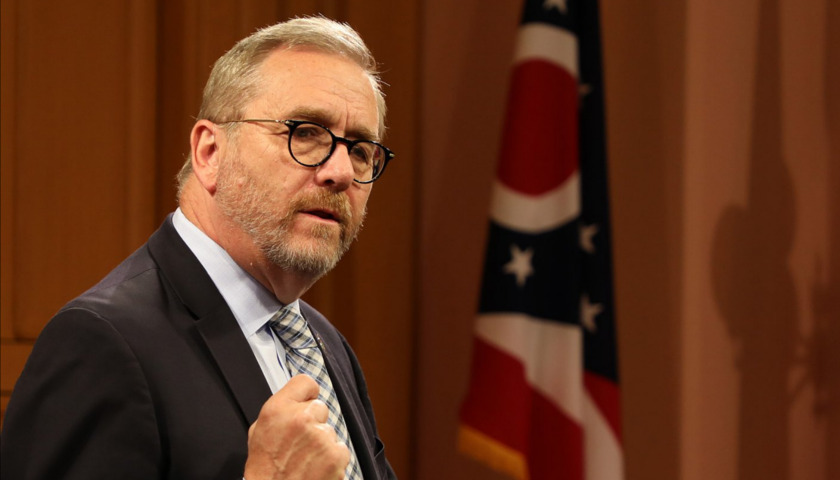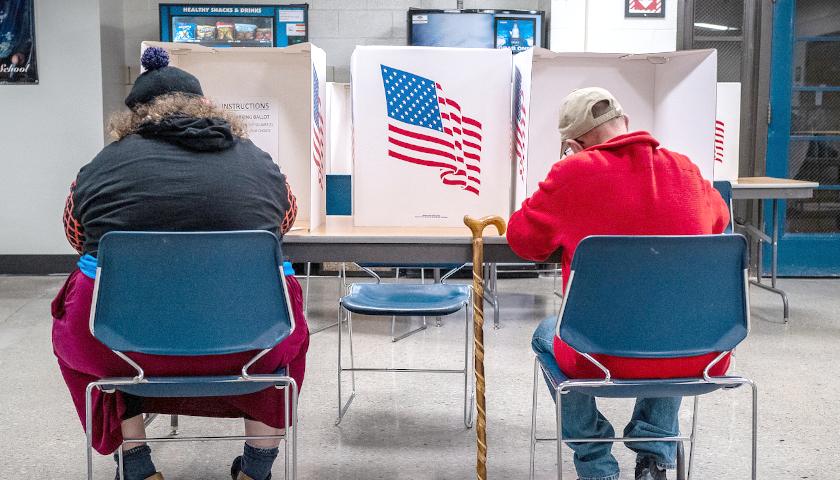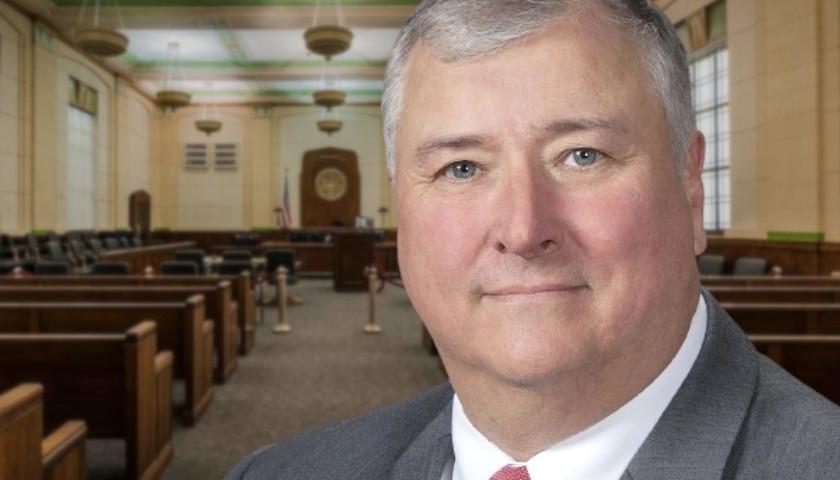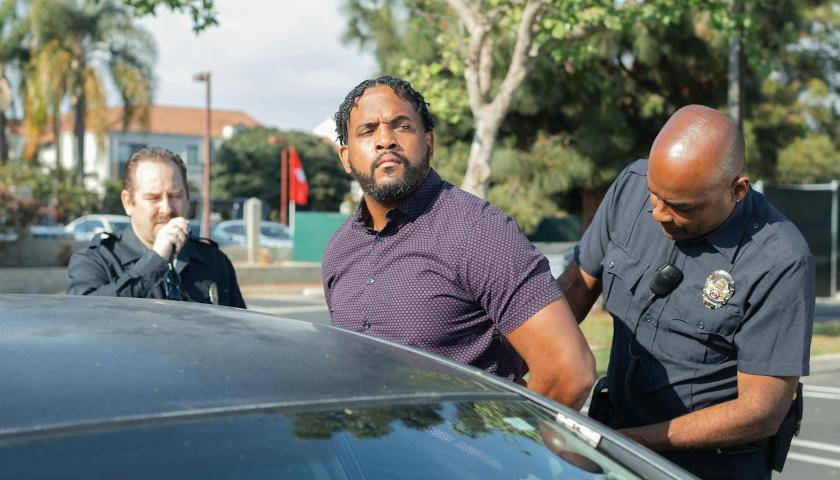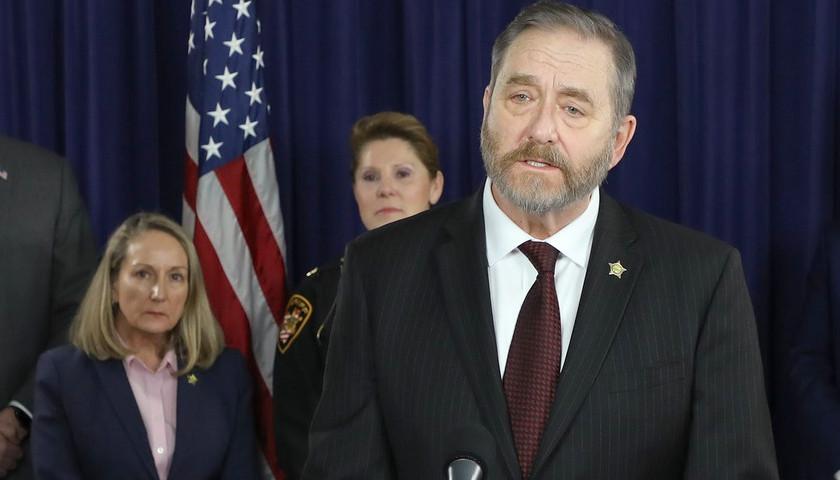A day after Ohio Attorney General Dave Yost broke rank with 17 other Republican Attorneys General around the country who joined the Texas lawsuit in favor of the Lone Star State, the Supreme Court of the United States (SCOUTS), according to the Texas Tribune. The Supreme Court of the United States (SCOTUS) threw out the case.
“Texas has not demonstrated a judicially cognizable interest in the manner in which another State conducts its elections,” the SCOTUS opinion stated. The high court said Texas lacked standing under Article III of the United States Constitution.
On Wednesday The Ohio Star reported that Ohio Attorney General Dave Yost was taking a “deep dive into the legal theories” of the lawsuit Texas filed in the Supreme Court of the United States (SCOTUS) against Pennsylvania, Georgia, Michigan and Wisconsin.
The Lone Star State contests the validity of the election results in the four states, as noted by Texas Attorney General Ken Paxton, who wrote in the suit:
The states violated statutes enacted by their duly elected legislatures, thereby violating the Constitution. By ignoring both state and federal law, these states have not only tainted the integrity of their own citizens’ vote, but of Texas and every other state that held lawful elections. Their failure to abide by the rule of law casts a dark shadow of doubt over the outcome of the entire election. We now ask that the Supreme Court step in to correct this egregious error.
State Representative Diane Grendel (R-Chesterland), a retired judge on the Ohio Eleventh District Court of Appeals, sent Ohio’s top legal advisor a letter on Wednesday urging him to expedite his review and to include Ohio in the case in support of Texas.
By Thursday morning, 24 Republican state representatives sent a letter to AG Yost, urging him to “cause the State of Ohio to intervene, become a party to, and support Texas’s effort to ensure the nationwide integrity of the electoral process.”
The state representatives cited alleged unconstitutional rule changes leading up to the election in the states named in the lawsuit and expressed concern, as legislators answerable to their constituents, that Ohio voters are being disenfranchised – eroding confidence in the “democratic principle of one person one vote.” The full letter is viewable below. Absent from the letter was Speaker of the House Bob Cupp (R-Lima).
[wonderplugin_pdf src=”https://tennesseestar.com/wp-content/uploads/2020/12/WINDSOR_OH-Rep-Letter_.pdf” width=”100%” height=”600px” style=”border:0;”]
By Thursday afternoon, Yost took action, but not the action requested from Representative Grendel and the 24 Republicans.
Instead of making Ohio a party to the lawsuit, Yost simply filed an amicus curiae brief (Latin for ‘friend of the court’).
Yost announced his move on Twitter:
I asked SCOTUS to rule on the Electors Clause question presented in Texas’s lawsuit. It is unconstitutional for judges and bureaucrats to change the rules set by state legislatures for selecting electors. pic.twitter.com/DWPAMc5pzE
— Dave Yost (@Yost4Ohio) December 10, 2020
What Yost urges most in the Ohio brief is for SCOTUS to take the case, but for the purpose of ruling on the Electors Clause – “Each State shall appoint, in such Manner as the Legislature thereof may direct, a Number of Electors, equal to the whole Number of Senators and Representatives to which the State may be entitled in the Congress: but no Senator or Representative, or Person holding an Office of Trust or Profit under the United States, shall be appointed an Elector,” demands the United States Constitution Article 2, Section 1, Clause 2.
Specifically, Yost wants the nation’s highest court to quickly decide “the question whether the Electors Clause permits state courts (and state executive officials) to alter the rules by which presidential elections are conducted.”
Based on his tweet “it is unconstitutional for judges and bureaucrats to change the rules set by state legislatures for selecting electors,” it could appear that Yost is supporting Texas in their quest to undo last-minute election law changes in key battleground states that may have skewed the election.
Instead, Yost rejected the idea that Texas could tap the power of SCOTUS to force states to change their direction on electors, who may have been appointed based on faulty vote totals. He wrote, “Texas seeks a ‘remand to the State legislatures to allocate electors in a manner consistent with the Constitution.’ Such an order would violate, not honor, the Electors Clause.”
Yost acknowledged that in many states people cast votes for a president based on rules that had been changed by state courts, governors and secretaries without including state judiciaries – the lawmakers where the power to write election laws alone resides.
Yost filed a brief a month earlier in the case of the Republican Party of Pennsylvania v. Boockvar on Ohio’s behalf. In it he said, “this Clause must be understood as empowering ‘state legislatures, not state courts, [to] set the rules for picking presidential electors.”
Yost further stated:
Because this Court has never held that the Electors Clause forbids state courts and state executive officers from meddling with state legislatures’ work, state courts and state executive officers retained leeway to change the rules in the final stretch of election season. It is not unreasonable to wonder—and many millions of Americans do—whether those hastily implemented changes exposed the election systems to vulnerabilities. Nor is it unreasonable to object on fairness grounds—as many millions of Americans do—to changing the voting rules when the election is impending and the changes’ impact on the results can be predicted. nothing in the Constitution empowers courts to issue orders affirmatively directing the States how to exercise their constitutional authority.
The Ohio AG doesn’t offer a suggestion on how to fix the alleged problem that states used COVID in order to unconstitutionally change election laws without the consent of each state’s legislature. His brief does urge SCOTUS to rule on the Electors Clause as a means of restoring faith in elections so that the 2024 election can be trustworthy.
Yost argued that “the relief that Texas seeks would undermine a foundational premise of our federalist system: the idea that the States are sovereigns, free to govern themselves.” Later he cited the supreme axiom that there ought to be a separation of powers between state and the federal government – “The courts have no more business ordering the People’s representatives how to choose electors than they do ordering the People themselves how to choose their dinners.”
An Ohio government attorney was contacted by The Star and asked to give an opinion on Yost’s brief:
Actually, I agree with virtually everything Yost says, except his ultimate conclusion that Texas’ requested relief would “violate, not honor, the Electors Clause.” Yost seems to be taking the position that the Supreme Court, in remanding to the legislatures with instructions to follow the Constitution, would be dictating to the legislatures as to how they should conduct their election.
But, I read Texas’ request as telling the legislatures to do what they already decided was proper, via the election laws they passed, but which were changed by courts or executives. Texas simply wants the Supreme Court to affirm that the legislators follow the law as the legislatures wrote it – not for the Supreme Court to write new laws.
But, I do see where Yost is coming from – it’s a fine hair that’s being split. But, for the most part, Yost seems to agree with Texas and the other states that legislatures, not courts or governors, should make election law. Or, at least he says if that’s not the case, this needs to be clarified before the next election.
Ohio will hand President Donald J. Trump its 18 electoral votes after the president won Ohio handily, by 8 percentage points and almost 500,000 votes.
Yost, who strongly opposed then-candidate Donald Trump in 2016, says that it is “unconstitutional for judges and bureaucrats to change rules set by state legislatures for selecting electors,” yet Ohio went through a disastrous primary election scheduled for March 17, but delayed by bureaucrats and judges.
The Star reached out to Yost on the matter of the Ohio primary election and to ask what remedy states and people who cast legal votes have in the absence of SCOTUS forcing votes cast against state laws to be thrown out, asking:
1) If AG Yost believes that bureaucrats and judges don’t have authority to change election rules (per his tweet yesterday), why did he not step in during the March primary election?
During that time five things occurred that seem to run counter to his strong statements about executives, courts and bureaucrats interfering in elections:
- Governor DeWine, Lieutenant Gov Husted, Amy Acton all called Secretary LaRose and told him that it was unsafe to conduct an in-person election;
- A lawsuit filed in Franklin Co aimed at closing the polls was rejected by Judge Frye who said: “it is the Ohio General Assembly that sets the election date and not the court system;”
- Despite Frye’s ruling LaRose and DeWine release statement saying “not possible” to hold in person election;
- An appeal of a Wood Co court case decided at 4am by four of seven Ohio Supreme Court justices said polls should not be open;
- Amy Acton (bureaucrat) issues order to close polls…if Yost believes what he said, why did he not step in March 16, 17 etc.?
2) If SCOTUS does not have authority to fix the election via the Electors Clause, what does AG Yost suggest in the four states where there are violations?
Neither Yost nor his spokesperson responded by press time.
All state’s electors will meet on Monday, December 14 – the lawsuit sought to delay electors in Pennsylvania, Georgia, Michigan and Wisconsin from casting their votes because unwinding that would be an even steeper challenge for parties seeking to correct alleged election violations.
Texas Republican Party Chairman Allan said of the SCOTUS decision in a released statement:
The Supreme Court, in tossing the Texas lawsuit that was joined by seventeen states and 106 US congressman, has decreed that a state can take unconstitutional actions and violate its own election law. Resulting in damaging effects on other states that abide by the law, while the guilty state suffers no consequences. This decision establishes a precedent that says states can violate the US constitution and not be held accountable. This decision will have far-reaching ramifications for the future of our constitutional republic. Perhaps law-abiding states should bond together and form a Union of states that will abide by the constitution.
– – –
Jack Windsor is Managing Editor and an Investigative Reporter at The Ohio Star. Windsor is also an Investigative Reporter at WMFD-TV. Follow Jack on Twitter. Email tips to [email protected].

